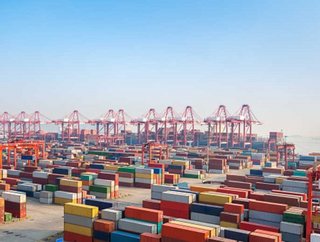UN agrees to halve shipping emissions by 2050 in historic deal

Members of the UN’s International Maritime Organization (IMO) have struck a historic deal to halve their CO2 emissions from shipping by 2050.
The deal marks a critical shift for the global shipping sector - which until last week, was one of the only major industries without a sustainable climate plan.
Cargo ships are crucial to today’s global economy, transporting about 90% of internationally traded goods.
Between 2007 and 2012 alone, global shipping by sea emitted around 1 billion metric tonnes of CO2 per year on average, according to the International Maritime Organisation.
This equates to 3.1% of global CO2 emissions per year, which is more than the annual emissions of Germany.
SEE ALSO:
- Shanghai Electric Generation Group signs EPC agreement with DEWA for solar power project
- Apple uses 100% renewable energy to power its global facilities
- The new power generation: An interview with Ready for 100
The Maritime body predicts that, if the industry is left unchecked, shipping-related emissions could soar by as much as 250% by 2050, as global trade continues to grow.
Publishing a detailed analysis of the climate agreement, University College London said “Meeting this target means that in the 2030s most newly built ocean-going vessels will run on zero carbon renewable fuels.
“Ships, which transport over 80% of global trade, will become free from fossil fuels by then."
Under the agreement, 173 nations are pursuing efforts to reduce CO2 emissions, taking into account the core objective of the Paris Climate Change Agreement, which aims to limit the rise in global average temperature below two degrees Celsius.
Speaking of the deal, Patricia Espinosa, the UN's Climate Change Executive Secretary, said: “The decision to at least halve greenhouse gas emissions from international maritime transport by 2050 is a major milestone in addressing climate change.
“It will accelerate the inevitable decarbonization of global shipping, which we all need to achieve the goals of the Paris Agreement.
She added: “I call on all nations to build on this achievement and use the review mechanism enshrined in the strategy to step up the level of ambition in 2023 when the strategy will be reviewed in light of the new science and available solutions. The climate compass is now clear, a low-carbon and resilient future is the only way forward for the sustainability of maritime transport.”






